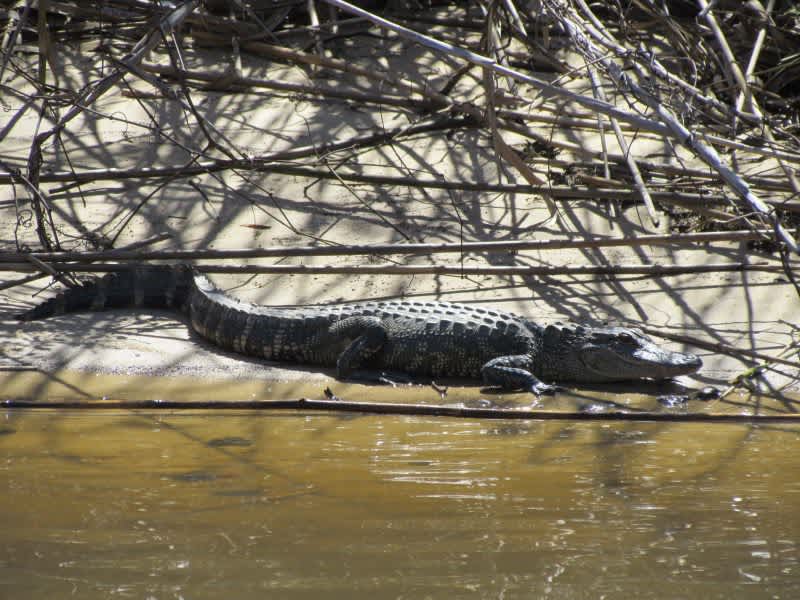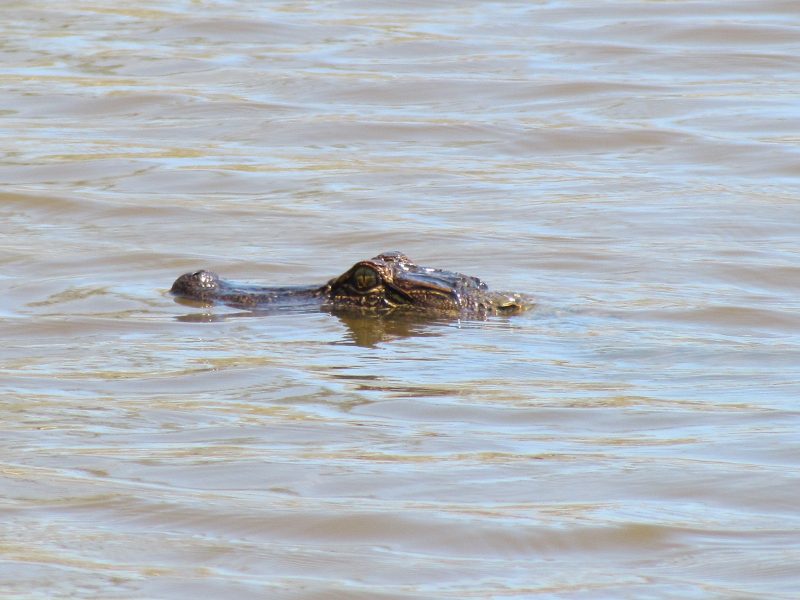How NOT to be Eaten by an Alligator
OutdoorHub Staff 06.10.16

When engaging in outdoor activities such as hiking, kayaking or fishing, it goes without saying that sharing the environment with animals is part of the experience. In some cases, this is no big deal because the animals present might not pose a threat to you. However, there are times when you could be confronted with danger. One example of this is when you cross paths with an American alligator.
Residing in the southern United States, commonly found swamps, lakes, and rivers anywhere from Texas to North Carolina, alligators are not really an animal that is easy to befriend. Trying to do so can be quite harmful, costing you a hefty price, such as a limb or even your life. Although modern television glorifies the handling or wrestling of alligators, the average person will benefit much more from avoiding encounters entirely.
In order to mitigate issues with alligators in a shared environment, being aware of your surroundings and knowing where you are most likely to stumble across one is essential. For example, gators tend to bask on embankments near bodies of water, so be sure to visually scan these areas before approaching. Do keep in mind, however, that they are ambush predators and can hold their breath for some time, so out of sight should not mean out of mind. A distance of at least 60 feet should be kept from crocodilian reptiles at all times.

Aggression can be displayed by gators for a variety of reasons, but one of the most common is a mother defending her young. Alligator mothers are quite dedicated, and even if Ms. Gator is out of your line of vision, she will be quick to respond to the needs of her young. Don’t think a baby alligator won’t tattle on you either; they make a chirping type sound when threatened, immediately summoning assistance from an angry, defensive mother.
Spring is mating season for gators, and this ups the aggression levels as they defend territories and compete for mates, sometimes cannibalizing one another in the process. Warm weather means love is in the air, but so is danger, so plan your outings carefully in gator territory.
Despite practicing avoidance techniques, there could come a time when you are confronted with an alligator. This is in large part because people feed them and thus they acclimate to humans and see them as a source of food. It is illegal to feed alligators, and a lot of times people actually do not realize they are doing so. If you discard your waste in the water after a fishing trip, guess who is going to eat it and then keep coming back for more? This creates a trained behavior and increases the possibility of interaction, so be sure to properly discard anything that would make a tasty treat.
Alligators will sometimes hiss and lunge before attacking, but keep in mind they also like to attack from a position of lurking below the water’s surface. When this happens, they tend to wait for you to be in an ideal position for an attack, such as directly overhead. If an alligator comes after you while you are in the water, it will likely be able to catch up to and overcome you. They are excellent swimmers and can hold their breath for up to a couple hours. On land, alligators can run very quickly, but only for a short amount of time. If you must flee, run as fast as you can in a straight line.
In the event that a gator manages to grab you, there are a few things you need to do. First of all, do not attempt to pry open jaws as bite pressure is too great and you won’t be able to do so. Instead, hit the gator’s nose or jab your fingers into the eyes. This makes you a difficult meal and the gator might release you in favor of an easier target.
Frequently, however, when an alligator latches onto prey, it immediately begins spinning in what is called a death roll. This is designed to tear limbs and pieces of meat free from an intended meal and can do major damage to joints and flesh. If you cannot get the gator to release you by fighting back, go with the roll and play dead. The sooner the gator thinks you are dead, the sooner you will be released. Gators tend to store their kills and come back to consume them later, so you might be able to escape and flee if you remain calm until such an opportunity presents itself.
Because outdoor recreation sometimes means running across creatures that don’t want to be your buddy, protecting yourself is paramount. Despite the heavy presence of alligators in some areas, bites are actually not that prevalent. Even so, commonsense should be exercised at all times in gator country so that you, and your limbs, will live to enjoy the outdoors another day.

